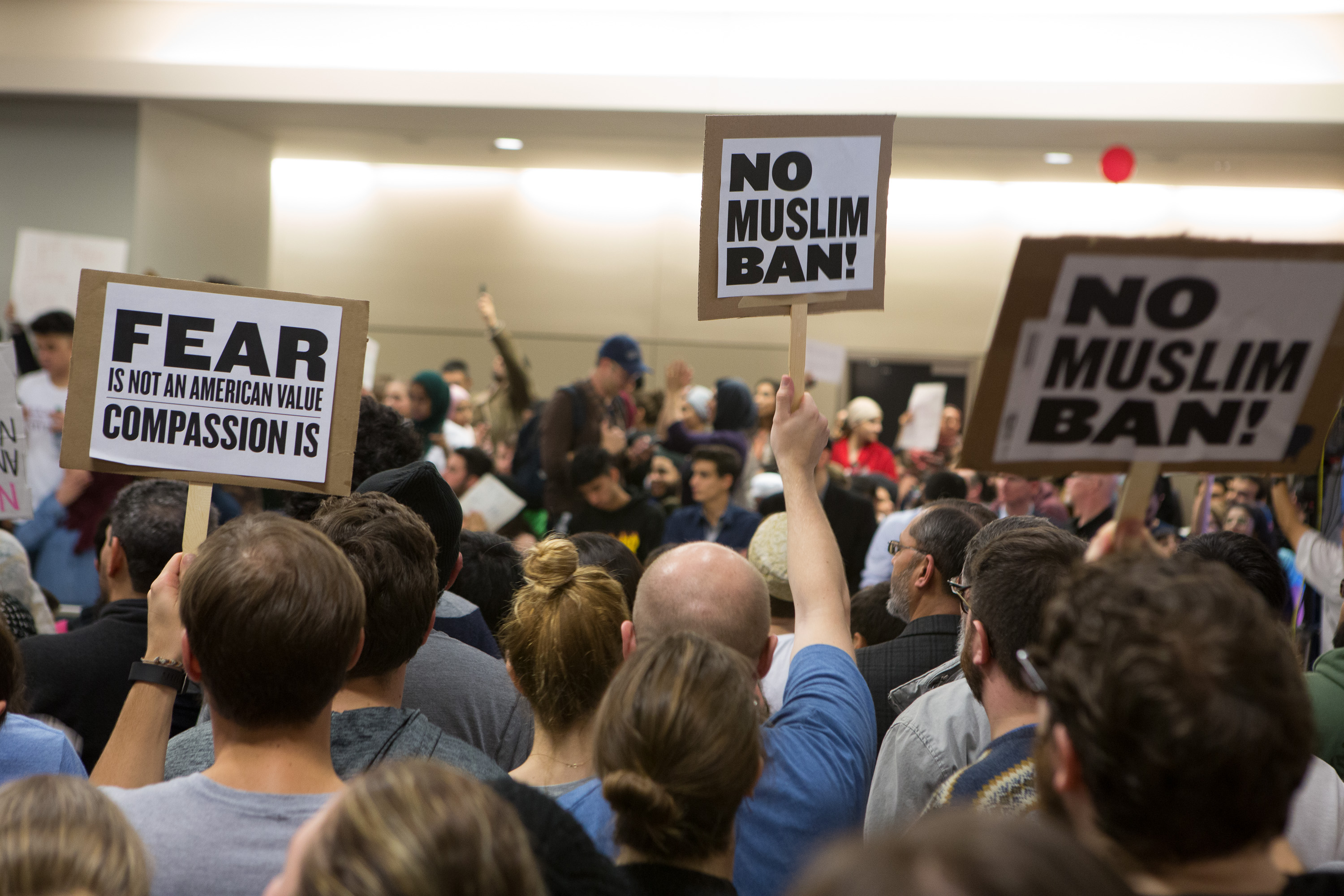Call it a win for the Trump administration? A new poll out from Politico/Morning Consult finds that the Trump “travel ban,” which restricts travel from several Muslim-majority countries to be fairly popular with the public at large.
Report from The Hill:
A majority of voters backs President Trump’s travel ban, according to a new survey.
A Politico/Morning Consult poll found 60 percent of voters support the State Department’s “new guidelines which say visa applicants from six predominately Muslim countries must prove a close family relationship with a U.S. resident in order to enter the country.”
Just 28 percent are opposed to the new guidelines, according to the poll.
A large majority, 84 percent of Republicans, supports the restrictions, while just 9 percent oppose them.
Democrats are split on the issue, with 41 percent supporting the ban and 46 percent opposing it.The poll question does not specifically mention President Trump or his executive orders on immigration.
The poll was conducted from June 29 to 30 among 1,989 registered voters. The margin of error is 2 percent.
The poll comes after the Supreme Court last month decided to allow a limited version of Trump’s order to take effect.
It’s interesting that 41 percent of Democrats surveyed support the ban, though 46 percent oppose it. Those are some striking numbers in the President’s opposition party, especially on something as hotly debated and litigated as the travel ban.
Howver, as New York Magazine points out, the President may still be in legal jeopardy as the executive order remains controversial:
After a brief victory lap that included mischaracterizing a Supreme Court ruling that partly favored his badly weakened travel ban, Donald Trump and his administration may again land in hot water over its enforcement, which began in earnest late on Thursday and already has lawyers scrambling to limit it further. That’s because the justices, in an unsigned opinion, issued guidelines on how exactly the federal government would be allowed to carry out the executive order — guidelines which are significantly less restrictive about who may visit U.S. citizens than Trump’s administration would wish them to be.
In its watered-down form, Trump’s order institutes a partial ban on travel to the U.S. for nationals of six Muslim-majority countries for 90 days, and suspends the refugee-resettlement program for 120 days. Lower courts in Maryland and Hawaii blocked these provisions in their entirety, but the Supreme Court has since reinstated them — with important limitations. The main one: The Trump administration can’t shut out any traveler from the affected nations who has a “bona fide relationship” to a person or entity in the U.S. That’s a broad requirement that the justices repeated four times, and which should exempt from the ban just about anyone who has a documented, good-faith bond with someone already here.
…
But there’s no word on the status of grandmothers yet. As of Saturday night, the State Department still didn’t think they or “grandchildren, aunts, uncles, nieces, nephews, cousins, brothers-in-laws and sisters-in-law … and any other ‘extended’ family members” made the cut.
Which in turn explains why Neal Katyal, the lawyer representing Hawaii in its travel-ban challenge, suggested on Thursday that the Trump administration may be in contempt of the Supreme Court, which never explicitly blessed such a restrictive reading of its own decision.
For whatever reason, the Court did not want to more clearly define “bona fide relationship,” and instead decided to leave that issue to lower courts, or to Congress. As a result, there will be many travelers who do in fact have some kind of solid relationship with someone in the United States, but whether or not they fall within the bounds of a “bona fide relationship,” such as the example of someone’s Grandmother, will be up to judges and lawyers.
As it stands on the surface, this appears to be winning issue for Trump which gathers some bipartisan support from voters.
Donate Now to Support Election Central
- Help defend independent journalism
- Directly support this website and our efforts
